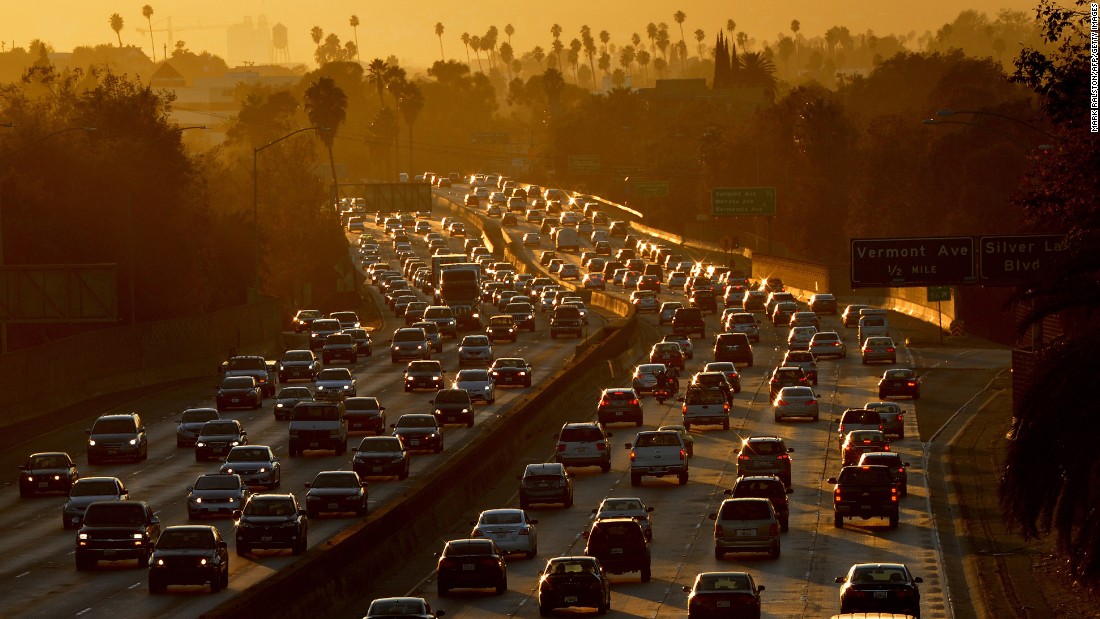
This time, the dispute is over California's authority to set its own auto emission standards that are stricter than the Trump administration's proposal. The Trump administration is expected to slow down or freeze annual increases the Obama administration scheduled each year until 2025.
Automakers cringe at the concept of two different auto markets in the US resulting from two different standards: one, set by California that also applies to 13 other states that follow its lead, and the federal standard that applies elsewhere.
California and the 13 states that follow it make up 40% of the US auto market, according to Dan Becker, whose Safe Climate Campaign backs California's position.
California regulators want to retain their decades-old authority to set pollution standards that stems from the 1970 Clean Air Act, and their environmentalist allies fear a weak or non-existent standard set by the Trump administration.
In a statement, the White house said that "Despite the Administration's best efforts to reach a common-sense solution, it is time to acknowledge that CARB has failed to put forward a productive alternative since the SAFE Vehicles Rule was proposed. Accordingly, the Administration is moving forward to finalize a rule later this year with the goal of promoting safer, cleaner, and more affordable vehicles."
California Air Resources Board spokesman Stanley Young said the two sides have not met since December 19 and that the meetings had been "entirely non-substantive, and discussions never reached the level that could be called 'negotiations.'"
"The administration broke off communications before Christmas and never responded to our suggested areas of compromise -- or offered any compromise proposal at all," Young said in a statement. "We concluded at that point that they were never serious about negotiating, and their public comments about California since then seem to underscore that point."
The Environmental Protection Agency did not respond to a request for comment, and the Department of Transportation, which also has a role in the standards, referred questions to the White House.
California has already filed more than three dozen lawsuits against the Trump administration, most recently over the president's declaration of a national emergency. Earlier this week, the administration withdrew nearly $1 billion of funding for a California high-speed rail system, and said it hoped to claw back $2.5 billion in prior funding for the canceled project.
Last May, California sued the Trump administration, alleging it wrongly decided to review the emission standards.
Experts watching the process expect the state will ultimately file a second challenge when the final rules are released.
They expect the Trump administration this spring to finalize a new plan for car emissions that would apply to model years 2022 to 2025.
The Obama administration's 2012 plan for model years 2017 through 2025 called for the standards to automatically increase every year. It also required a review at the halfway point, which the administration completed before the 2016 election. It decided not to change the plan.
Soon after the Trump administration took office, the Auto Alliance -- a vehicle manufacturer industry group -- asked the Trump administration to reconsider. It did, and announced it would develop a new plan.
Becker expects the document to formally rescind California's authority.
"The administration seems hell-bent to run these emission regulations off the cliff," he said of the Obama-era standards.
Sen. Tom Carper, the senior Democrat on the environment committee, urged the EPA to negotiate in good faith because "litigation is not the best option here."
"It wastes time, money, creates uncertainty for American automakers and harms the environment," he said in a statement. "I encourage automakers to speak out quickly, loudly and clearly against this decision, since each and every automaker previously urged the administration not to proceed with this misguided, legally questionable and irresponsible path."
No comments:
Post a Comment